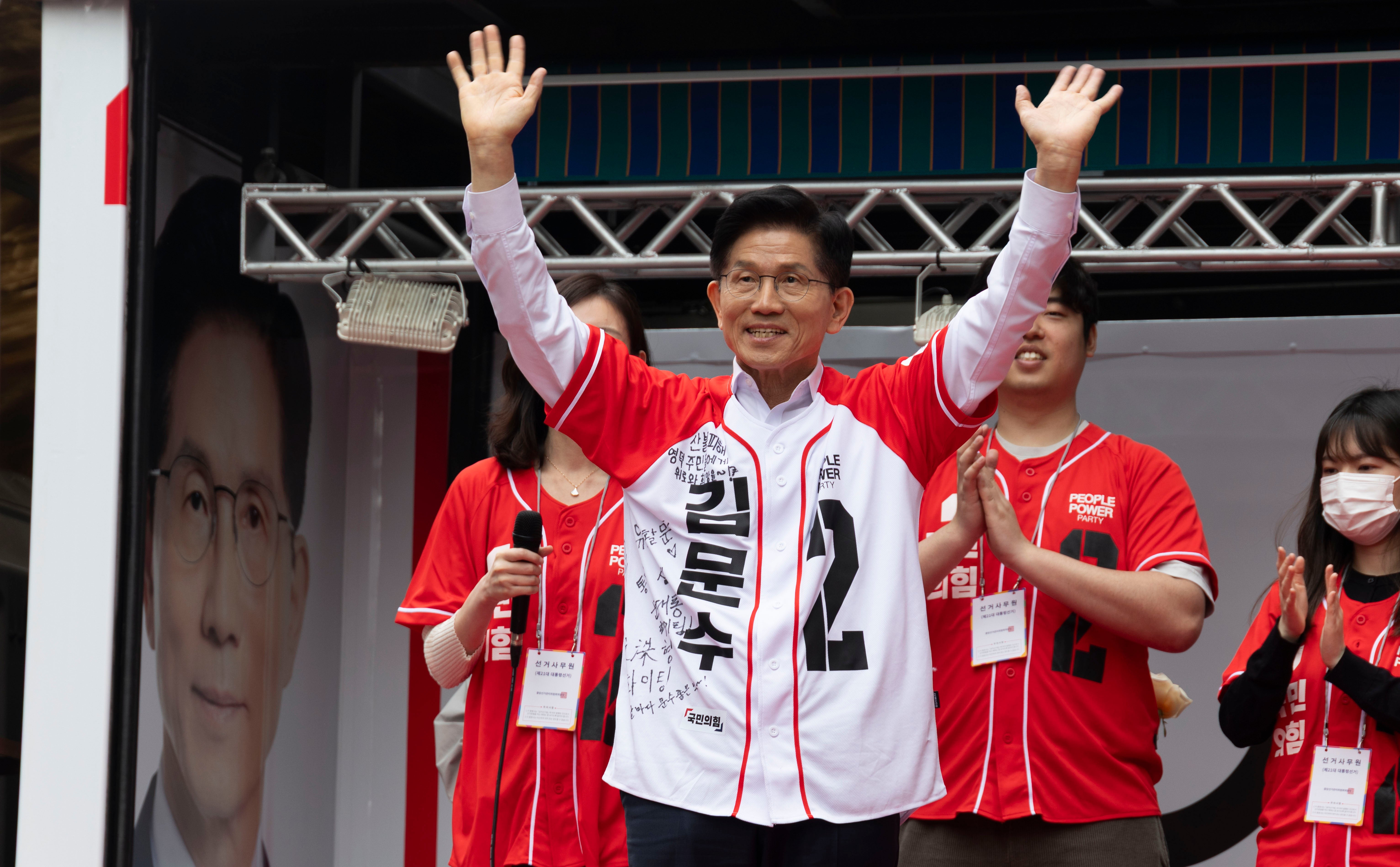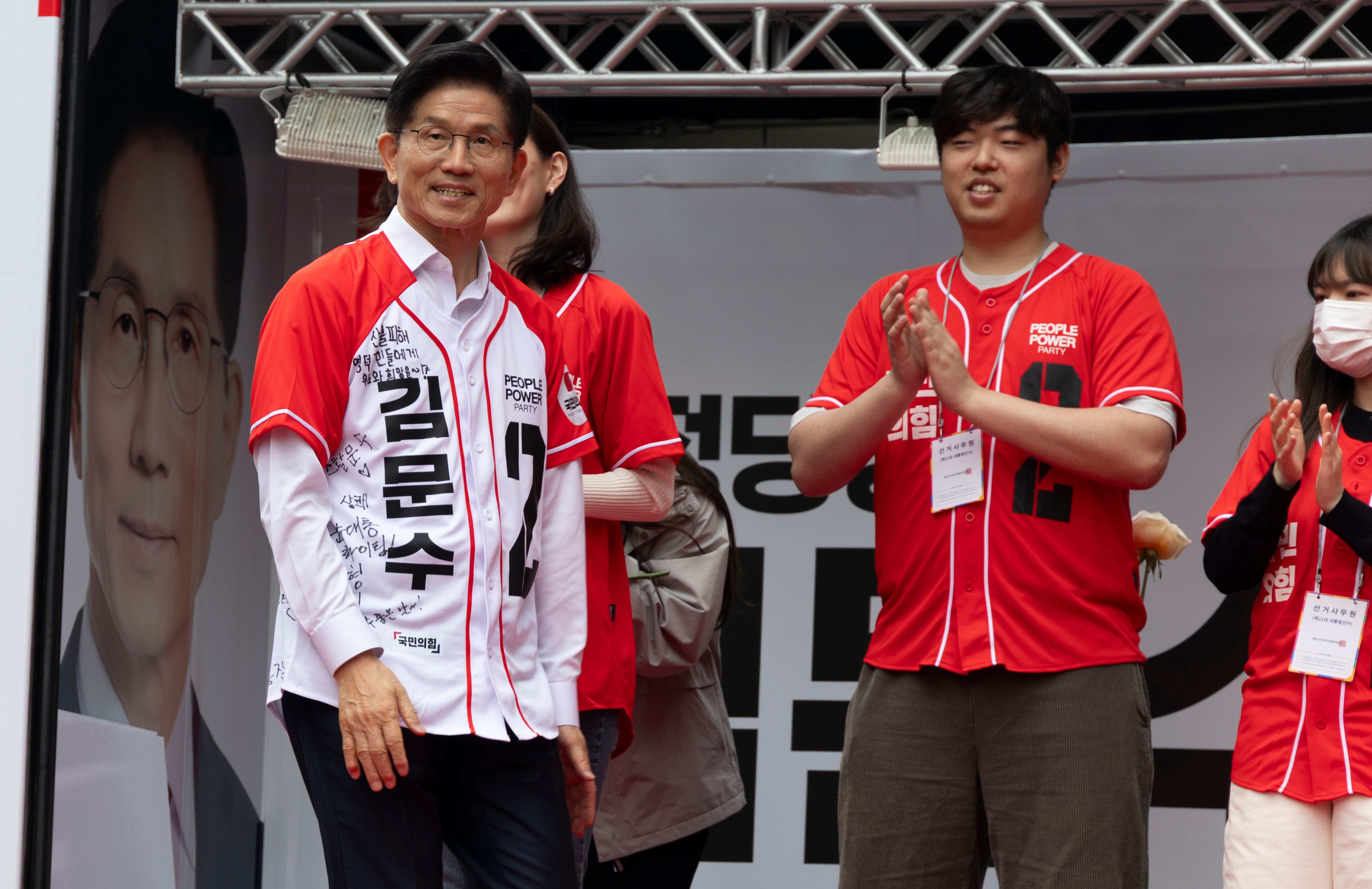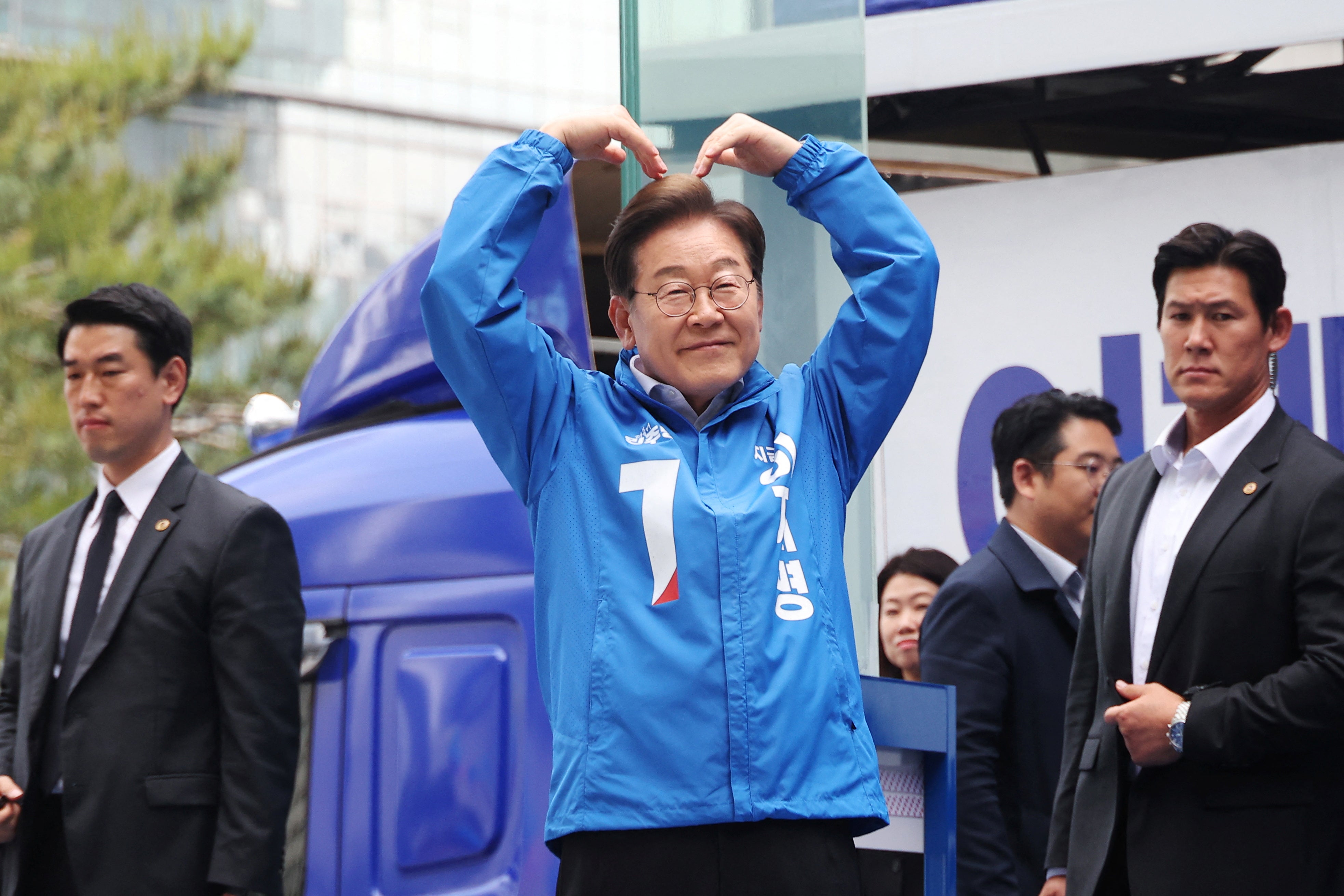South Korea’s leading presidential hopefuls traded sharp blows in their first televised debate on Sunday as the country prepared for a snap election on 3 June following the impeachment of former leader Yoon Suk Yeol over his failed bid to impose martial law.
Lee Jae Myung, candidate for the liberal Democratic Party and current frontrunner, used the stage to lay out an expansive policy vision, including major investments in artificial intelligence, labour protections and economic self-reliance. His main rival, Kim Moon Soo of the conservative People Power Party, focused on job creation, deregulation and strengthening the country’s alliance with the US.
The debate took place against the backdrop of political instability and economic uncertainty. The national economy shrank in the first quarter of this year, hampered by stalled exports and weakened domestic consumption.
The downturn has been compounded by newly imposed tariffs from Washington, part of a broader push by US president Donald Trump to reduce trade imbalances with allied nations, including South Korea and Japan.
Addressing these concerns, Mr Lee argued for a careful, interest-first approach in navigating Seoul’s trade relations with Washington. “We should not go all-in on our alliance with the US,” he said, stressing that while security cooperation with Washington and Tokyo remained vital, Seoul must also manage relations with China and Russia.
“There is no need to rush into a trade agreement. We must prepare delicately and competently,” he said.

The 59-year-old, who has consistently led opinion polls with 51 per cent support according to Gallup Korea, advocated a robust economic transformation through high-tech investment. He pledged 100 trillion won (£56bn) towards developing “sovereign AI” to give South Koreans free access to domestic equivalents of tools like ChatGPT.
“We will focus on developing so-called sovereign AI so our people can at least use something like ChatGPT for free like an electronic calculator," Mr Lee said.
He also promised to introduce a four-and-a-half-day working week, provide tax incentives for domestic semiconductor production, and bolster green industries as a route to sustained growth. “We need to nurture high-tech and renewable energy industries to overcome low economic growth,” he said.
Earlier in the day, Mr Lee called for constitutional reform to allow two presidential terms of four years each and a two-round voting system, replacing the current single five-year term.
He also vowed to curtail the president’s power to declare martial law.

Mr Kim, who trails in the polls with 29 per cent, appealed to conservative voters and businesses by promising deregulation and pro-market reforms.
He proposed setting up a dedicated government agency to streamline regulations and said over five per cent of the budget would be earmarked for research and development.
Addressing military and foreign policy, Mr Kim said he was willing to increase South Korea’s share of the cost of stationing US troops in the East Asian country, a sensitive issue that has gained renewed attention as part of Mr Trump’s broader tariff negotiation strategy. Some 28,500 American soldiers are based in South Korea, their presence considered a buffer against North Korea’s nuclear threat.
“People are nervous if president Trump says let's raise [South Korea's] share of the US military in South Korea, and I believe we can raise it to a certain degree,” Mr Kim said during a meeting with the American Chamber of Commerce Korea.
He added ensuring the continued presence of American forces should be a priority not just for Washington but for Seoul as well.

Since the early 1990s, South Korea has shared the cost of US troop deployment on its soil, funding local wages, logistics and infrastructure.
The current agreement, signed last October, commits Seoul to an 8.3 per cent increase in its contribution, amounting to 1.52 trillion won (£850m) a year.
South Korean officials have insisted the deal is not open for renegotiation, pushing back against efforts to link it with trade talks.
In spite of heated exchanges, the presidential debate was marked by a relatively substantive tone, with both candidates offering contrasting visions on how to restore economic momentum and safeguard strategic interests in an increasingly multipolar Asia-Pacific.
The upcoming election, triggered by the dramatic ousting of Mr Yoon last month, comes at a pivotal moment for South Korea, a technology powerhouse and the world’s tenth-largest economy. With political credibility shaken and external pressures mounting, the next president will be tasked with navigating not only a fragile recovery but shifting geopolitical tides as well.
Pakistan PM offers peace talks with India as ceasefire extended
Donald Trump said he had a ‘little problem’ with Apple’s Tim Cook over India plans
Study unravels mystery of how Haenyeo women spend hours underwater without oxygen
S Korean presidential candidate’s shoes sell out after becoming hit ‘election merch’
Deadly lightning strike kills three at busy Cambodia tourist spot
Ship carrying cocaine and MDMA worth £320m seized by Indonesia







